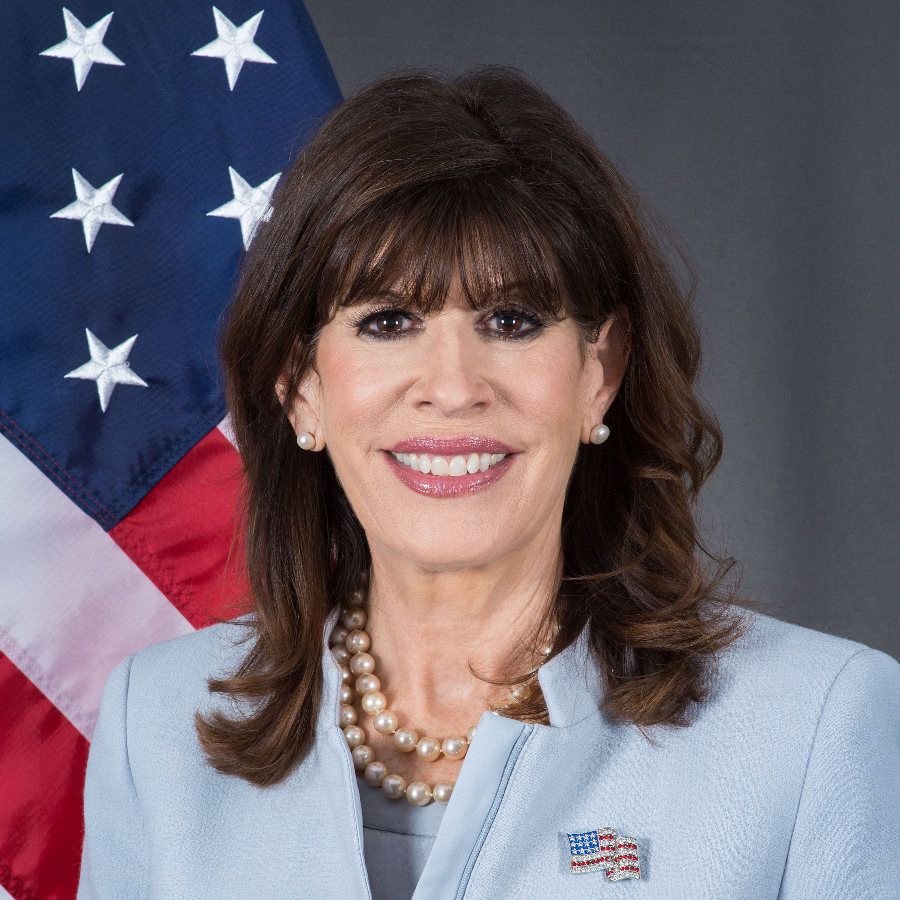According to the Dominican newspaper, Diario Libre, Robin Bernstein said that “over the years, the Dominican Republic has faced many threats to the health of civil society. If confirmed as Ambassador I promise to continue promoting policies that will benefit human rights, reinforce the democratic institutions, and fight corruption. [caption id="attachment_5177" align="aligncenter" width="900"]Conoce a la nueva Embajadora de los Estados Unidos para la República Dominicana, Robin Bernstein. pic.twitter.com/0aCmSiHQRl
— EmbajadaUSAenRD (@EmbajadaUSAenRD) August 27, 2018
 Robin S. Bernstein, Ambassador to the Dominican Republic. Image by: U.S. Department of State.[/caption]
Robin Bernstein made a statement that could prove difficult in the future when she said, according to Dominican newspaper Dominican Today, “If confirmed, she will work so the rights of the descendants of Haitians affected by the 2013 Constitutional Court´s ruling will be respected.” The newspaper added: “Robin Bernstein’s statement will likely face a backlash in a country which has recently started a crackdown on the ever-growing wave of undocumented foreigners, mostly Haitians.”
Many Haitian descendants were left as “stateless” when the Constitutional Court established that foreigners born of transient parents do not have the right to Dominican citizenship. The Constitutional Court supports the "Jus Sanguinis" (right of blood), the nationality law principle by which citizenship is determined by having parents who are citizens of the state. By contrast, “Jus Loci”, the right of citizenship by birthplace is a principle which the Constitutional Court has denied.
“I will take,” she added, “a very active role in working with the Embassy and Embassy staff. We will work with them to obtain a passport.” For that effort, she could be implying she will collaborate with the U.S. Ambassador in Haiti.”
Robin S. Bernstein, Ambassador to the Dominican Republic. Image by: U.S. Department of State.[/caption]
Robin Bernstein made a statement that could prove difficult in the future when she said, according to Dominican newspaper Dominican Today, “If confirmed, she will work so the rights of the descendants of Haitians affected by the 2013 Constitutional Court´s ruling will be respected.” The newspaper added: “Robin Bernstein’s statement will likely face a backlash in a country which has recently started a crackdown on the ever-growing wave of undocumented foreigners, mostly Haitians.”
Many Haitian descendants were left as “stateless” when the Constitutional Court established that foreigners born of transient parents do not have the right to Dominican citizenship. The Constitutional Court supports the "Jus Sanguinis" (right of blood), the nationality law principle by which citizenship is determined by having parents who are citizens of the state. By contrast, “Jus Loci”, the right of citizenship by birthplace is a principle which the Constitutional Court has denied.
“I will take,” she added, “a very active role in working with the Embassy and Embassy staff. We will work with them to obtain a passport.” For that effort, she could be implying she will collaborate with the U.S. Ambassador in Haiti.”
About the 1940 Jewish refugees
Ambassador Bernstein made an interesting comment regarding human rights when she declared “gratitude” for how the Dominican people cared about the Jewish people.” Referring to the Trujillo regime authorization in 1938, in the Evian Conference, for a Jewish refugee settlement in Sosua, in the Dominican Republic's north coast. The only country in the world to grant such an authorization.Who is Robin Bernstein
Bernstein is a millionaire businesswoman married to the well-known entrepreneur Richard Bernstein. She was President and Director of Richard S. Bernstein and Associate, Inc. since 2004, and Vice President of Rizbur, Inc. since 2002, both from West Palm Beach, Florida. She acted as head of the Republican delegates in Tallahassee that confirmed the electoral votes in favor of Donald Trump in the 2016 elections. [caption id="attachment_5176" align="aligncenter" width="800"] Robin Bernstein, the new US Ambassador to the Dominican Republic, posing with her husband, Richard Bernstein, and President Donald Trump. Photo by: The Independent[/caption]
Robin Bernstein, the new US Ambassador to the Dominican Republic, posing with her husband, Richard Bernstein, and President Donald Trump. Photo by: The Independent[/caption]

